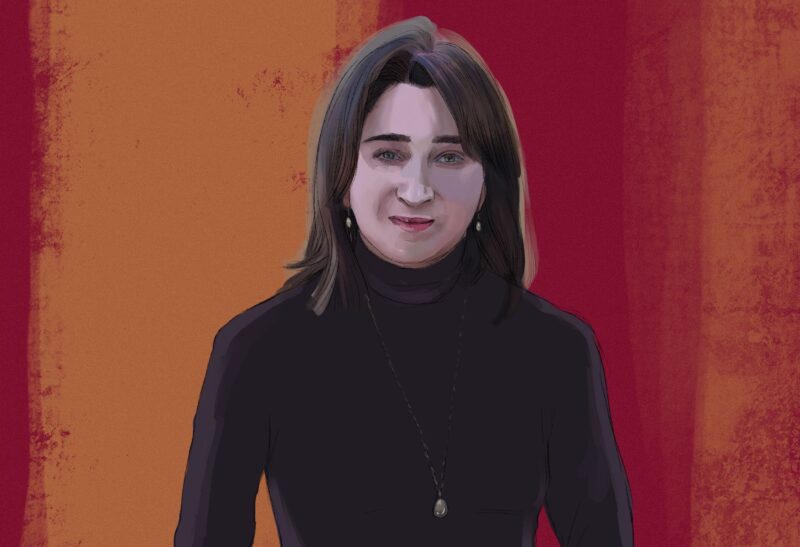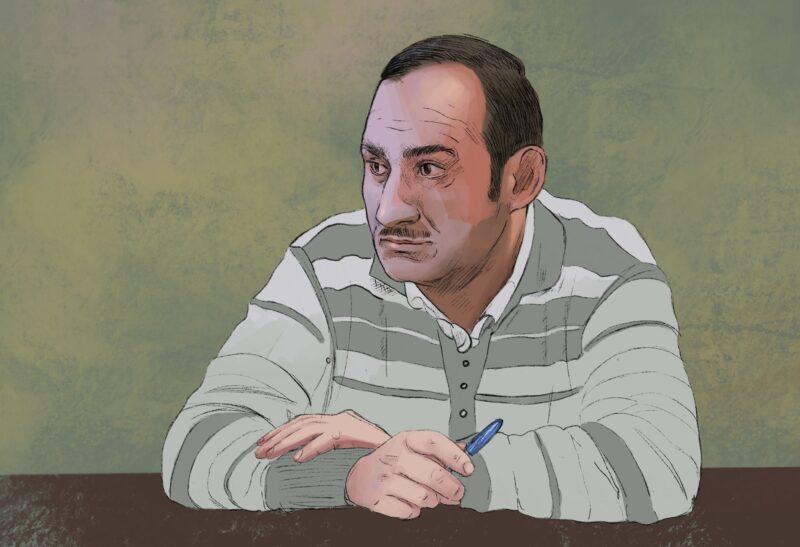
My family lived in Russia for four years. I was in elementary school at that time. I learned Russian in school, from Russian fairy tales and native speakers.
Then we came back to Azerbaijan.
Teachers in our village could barely teach their subjects properly in Azerbaijani, nonetheless Russian. Our Russian language teacher discussed more often the subject of whose mother was able to breed more chickens than she did the Russian language.
I had no idea what role Russian would play in my life. But for some reason, I didn’t forget the language.
The Russian fairy tales from our village library, adventure books, previous classmates from Russia and our neighbours didn’t let me forget the language. In fact, quite the opposite – my skills in the language developed. But as I didn’t have a single person to talk to in Russian, I still to this day have an accent.
Then we became internally displaced persons.
I changed secondary schools six times. All of them had a vacancy for an English teacher. And sometimes there was even a person that signed for the salary of that position, but we never had a lesson with them in reality.
After completing my higher education and beginning work, I started earning money for myself and my family. I didn’t have time for English then either. And so my English hasn’t progressed beyond an elementary level.
It was impossible during those years for someone who was taking care of their family to have some extra money for themselves.
For that reason, I began translating Russian language literature into Azerbaijani. Then I found a job for myself in translation, and started earning 2000-3000 dollars per book.
After cutting ties with Azerbaijan, thanks to the Russian language, I found lots of friends in the South Caucasus and post-Soviet countries. I built business relations.
Many around the world are interested in the events going on in the post-Soviet countries, of what actually is happening there on the ground.
What is the South Caucasus? Conflicts. Autonomous republics. Gender issues. Pressure on LGBT individuals, ethnic minorities. Religious radicalism. The topic is heaven for an independent journalist.
And thanks to Russian, I’ve been able to cooperate with many a number of international media organizations and to cover what is happening here.
Because of my Russian I can ask help from Armenian and Georgian journalists from those countries. I can be involved in trainings and seminars.
And despite my poor English, I’ve still been able to accomplish much here. In fact, I think Russian has been even more valuable to me. Russian has retained its importance in the region, and the number of competent writers covering issues in Russian is few compared to the overly-crowded English-language websphere.
As a writer-journalist, I am thankful to the Russian language for being able to realize myself in this language. I cannot understand how some look at Russian as a useless tool and discriminate against it. Is there anybody for whom learning Russian is actually an obstacle to their goals?
Where is the guilt and shame of people who choose to study in Russian? Is it bad to read Tolstoy in the original? Is it a shame to watch Tarkovsky in the original? Is it so bad to read Novodvorskaya in her own language?
Is it a sin to understand the soul, view and trends of a country whose territory covers almost one-sixth of the world?



